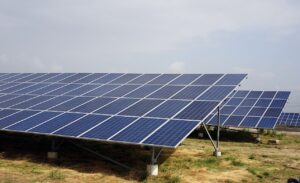Determining whether switching to solar power is financially justified depends on several factors, including your current electricity bill, location, system costs, available incentives, and your long-term goals.
Here are some steps to help you assess whether going solar is a good decision for you:
Analyze your electricity bill
Start by reviewing your electricity bills over the past year to understand your monthly and annual usage. Look for any patterns or trends in your energy consumption.
Check your location
The amount of sunlight your location receives is a crucial factor in the feasibility of solar power. If you live in an area with abundant sunlight, solar panels are more likely to be cost-effective.
Solar panel costs
Research the cost of solar panel systems in your area, including installation and equipment. Costs can vary significantly, so getting multiple quotes from reputable solar installers is essential.
Incentives and rebates
Investigate federal, state, and local incentives, tax credits, and rebates for solar installations. These can significantly reduce the upfront costs of going solar.
Electricity rates
Consider the current and expected future electricity rates. If your utility charges high rates, you may save more by generating your electricity with solar panels.
Energy production estimate

Solar installers can provide you with an estimate of how much electricity a solar system of a specific size would produce on your property. This estimate helps you determine your potential savings.
Payback period
Calculate the payback period for your solar investment, which is the time it takes for the energy savings to cover the cost of the solar system. Generally, shorter payback periods are more favorable.
Long-term goals
Consider your long-term goals. If you plan to stay in your current home for many years, the financial benefits of solar panels may outweigh the upfront costs. However, if you’re planning to move soon, the return on investment may be less attractive.
Environmental impact
Going solar can reduce your carbon footprint and contribute to environmental sustainability. While this may not have a direct financial benefit, it’s a significant consideration for many homeowners.
Consult a solar professional
It’s highly recommended to consult with a solar professional or installer who can provide a personalized assessment of your situation, including potential savings and system size recommendations.